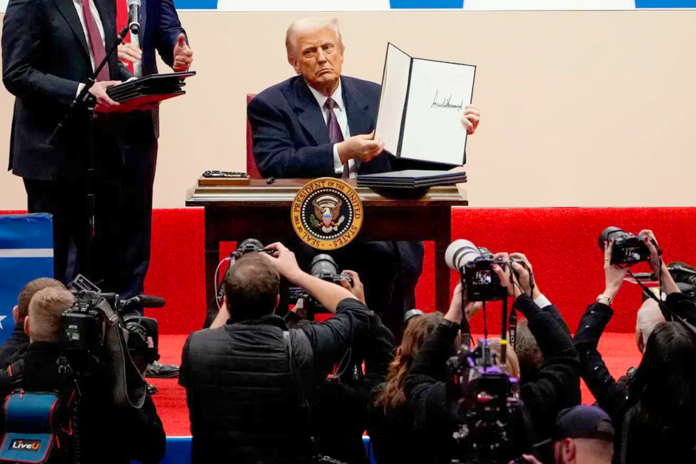WASHINGTON — In a significant policy shift, the United States has suspended all humanitarian aid through the U.S. Agency for International Development (USAID), including a $125.5 million commitment to Somalia, as of Monday.
President Donald Trump’s administration has closed USAID’s headquarters in Washington, D.C., resulting in the layoffs of approximately 10,000 employees. Two-thirds of these roles are based internationally. Staff were instructed to remain at home, and many could not access their work emails. Trump has appointed Secretary of State Marco Rubio to lead USAID during this suspension temporarily.
The Trump administration justified the move by pointing to allegations of corruption and mismanagement within USAID, branding it as influenced by “left-wing extremists.” Elon Musk, advising Trump on government spending, has suggested the agency might be permanently shuttered.
This unexpected suspension has left Somalia, which was counting on USAID aid for critical humanitarian and development initiatives, in a precarious position. A high-ranking Somali official highlighted the importance of USAID’s support in improving the living conditions of many Somalis.
Now, both the Somali government and various aid organizations are urgently seeking alternative funding to mitigate the impact of this aid cut. The U.S. decision is seen as a potential catalyst for exacerbating Somalia’s existing challenges, including climate-induced drought, famine, and ongoing conflict.
From October 2024 to January 2025, USAID had promised $125.5 million to Somalia. However, due to the suspension, these funds are now in jeopardy. This move aligns with Trump’s “America First” policy, which aims to tie foreign aid more directly to U.S. national security interests.
Ken Jackson from USAID labeled the suspension as a “complete halt.” Additionally, nearly 60 senior officials from USAID were put on administrative leave for challenging the order, underlining the administration’s resolve.
USAID, established in 1961 by President John F. Kennedy, has traditionally been a key player in combating global poverty and bolstering democracy, with an annual aid distribution of around $40 billion.
As this policy unfolds, there is a strong call from Somalia and humanitarian groups for the U.S. to reverse its decision to prevent further destabilization of Somalia’s humanitarian landscape.





